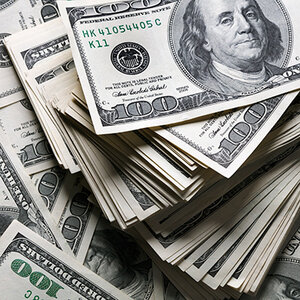Oxfam calls for wealth taxes to fight ‘explosion of inequality’

The world’s richest 1 percent have captured almost two-thirds of all new wealth since the beginning of the COVID-19 pandemic, while global poverty has increased for the first time in 25 years, a report from Oxfam International finds.
The report, Survival of the Richest: How we must tax the super-rich now to fight inequality (57 pages, PDF), released to coincide with the opening of the World Economic Forum in Davos, Switzerland, calls for imposing higher tax rates on the ultra-wealthy to address what Oxfam describes as an “explosion of inequality” driven by a “polycrisis” of related global challenges including climate change, cost-of-living burdens, widespread hunger, and declines in human development exacerbated by the pandemic that has killed an estimated 20 million people since 2020.
According to the report, 81 billionaires hold more wealth than 50 percent of the combined assets of the total world population and the aggregate global wealth of billionaires is increasing by $2.7 billion a day, while inflation is outpacing the wages of at least 1.7 billion workers around the world and an estimated 800 million people go to bed hungry every night. The report estimates that only 4 percent of global tax revenue is currently generated from wealth taxes and that an additional 5 percent tax on the world’s wealthiest individuals could raise $1.7 trillion annually, enough to lift two billion people out of poverty and fund global efforts to end hunger.
The report identifies inequitable taxation as one part of a larger “discredited cycle of never-ending billionaire wealth accumulation” that includes inequitable labor laws, the privatization of public assets, and executive compensation. Noting that, while halving the number of billionaires—back to their number in 2012—is a “starting point…[t]he eventual aim should be to go further, and to abolish billionaires altogether, as part of a fairer, more rational distribution of the world’s wealth.”
“Taxing the super-rich is the strategic precondition to reducing inequality and resuscitating democracy,” said Oxfam International executive director Gabriela Bucher. We need to do this for innovation. For stronger public services. For happier and healthier societies. And to tackle the climate crisis, by investing in the solutions that counter the insane emissions of the very richest.”
(Photo credit: Getty Images/Pineapple Studio)




